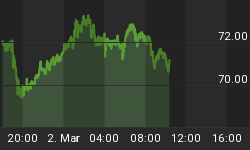If you are concerned about how bird flu might affect the stock market or your investments, you should take a moment to listen to a March 23, 2006 interview with Dr. Paul Offit, chief of infectious diseases at Children's Hospital in Philadelphia. In the interview, the doctor, citing the results of a study published in a magazine named Nature (www.nature.com), states that the current bird flu virus gets imbedded deep in the lungs of infected humans. Humans sneeze and cough from much higher levels in the lungs making it remote that the disease would spread from human to human. Dr. Offit states that the 1957 flu pandemic that began in Hong Kong occurred because the virus was spread from human to human, which is not the case in the current situation. The current avian bird flu is known as a H5 virus. H5 viruses have been around for over 100 years and have never caused a pandemic.
Dr. Offit goes on to say that he believes that the current focus on bird flu stems from the fear of future pandemics (not the current avian bird flu). As most of us are aware, experts agree that it is only a matter of time before the next pandemic strikes, but it is remote that we are at that point today. Our hope is that the current coverage will help us prepare for the day when we do have to deal with an extremely serious pandemic.
From an investment perspective, we will continue to closely monitor the current situation. In the unlikely event that the current avian bird flu does mutate into a more dangerous virus, we already have contingency plans in place, which will allow us to adjust our investments in a timely manner. We suggest that all investors monitor the situation.
You can listen to the NPR interview with Dr. Offit via the following link: NPR Bird Flu Interview (http://www.npr.org/templates/story/story.php?storyId=5297299).
















